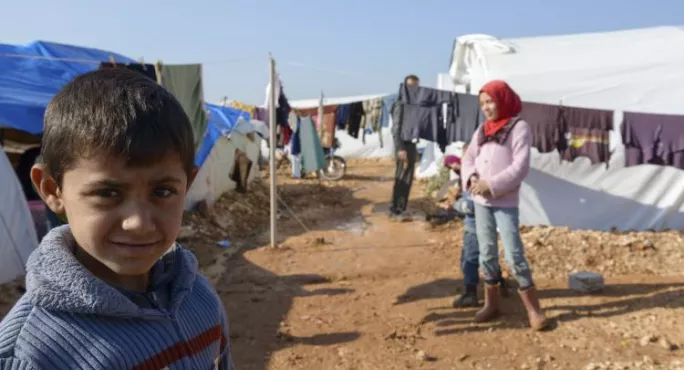Kabir came to the UK in the╠²spring, via the notorious ŌĆ£JungleŌĆØ camp in Calais, to escape the horrors of war-torn Syria,╠²and he hoped to attend school as soon as he arrived.
But the╠²17-year-old had to wait six months to achieve his goal of returning to full-time education. He eventually managed to enrol╠²at a college in north London.
ŌĆ£The main problem, other than the language barrier, when I came here╠²was that there were╠²a lot of regulations which were not explained to me,ŌĆØ he told journalists this morning.
Kabir╠²was one of three Syrian refugees╠²who╠²shared their experiences in adjusting to life in Britain╠²at a roundtable event in London organised by the Varkey Foundation and Safe Passage UK charities.
ŌĆśI have got to know death very wellŌĆÖ
But the difficulties he has faced here are very different to╠²KabirŌĆÖs recent experience of Syria, where many members of his family were killed.
ŌĆ£My cousins died, my brother was mutilated, my parents died. I have now got to know death very well,ŌĆØ he said.
When asked whether, in coming to the UK, he had been a victim of racism, he said the only prejudice he had suffered was in Calais.
ŌĆ£I have not seen hatred like the hatred from the French.╠²When we╠²used to leave the camp at night we used to get beaten for no reason,ŌĆØ he said.
Mohammed, 17, started at╠²college three months ago, and also identified language as a barrier to his integration into the education system.
ŌĆ£I found many difficulties to start with because I didnŌĆÖt have the language. But IŌĆÖm very strong and I got here, so I started to╠²tackle things slowly,ŌĆØ he said.
ŌĆ£The main problem that I have had is that I wasnŌĆÖt in education for over four years due to the bombing in Syria.ŌĆØ
Omar, 16, who is due to start at college on Monday, said that, in settling in the UK, the╠²only source of information for him had been the lawyer arranged by Safe Passage UK.
The charity, which helps refugee children who have a legal right to be reunited with family who are already living in Britain, supported all three boys in leaving Calais.
ŌĆśProfound psychological harmŌĆÖ
The roundtable event also╠²featured╠²figures from education and politics, including╠²Hanan Al Hroub,╠²the winner of this yearŌĆÖs╠²Global Teacher Prize for her work educating Palestinian children traumatised by violence.
Ms Al Hroub said: ŌĆ£As I have experienced in my conflict-riven homeland, children who see conflict around them on a daily basis experience profound and deep-rooted psychological harm.
ŌĆ£It is therefore crucial that the government puts in place measures that ensure unaccompanied children who╠²arrive in the UK have a safe, secure and loving environment.
ŌĆ£Local authorities need to be given the budgets to deal with this. They should not have to choose between providing social care for frail adults and supporting vulnerable refugee children.
ŌĆ£The role of education for refugee children is not only to teach them to read and write in English, it is also to give them the resilience and persistence they need to deal with what they have experienced, and to avoid repeating the violence they have witnessed.ŌĆØ
Gareth Thomas, the MP for Harrow West, where a number of Syrian refugees╠²have been resettled, said he was disappointed that the government made no announcement about extra support for refugee childrenŌĆÖs╠²education in yesterdayŌĆÖs autumn statement.╠²
ŌĆ£There was no recognition of BritainŌĆÖs responsibility towards children╠²from Syria and the pressures on schools, such as those in my constituency, who want to do the right thing but who need additional resources,ŌĆØ he said.
The names of the young Syrians taking part in the event have been changed to protect their anonymity
Want to keep up with the latest education news and opinion? Follow╠²╠²and like╠²
╠²





